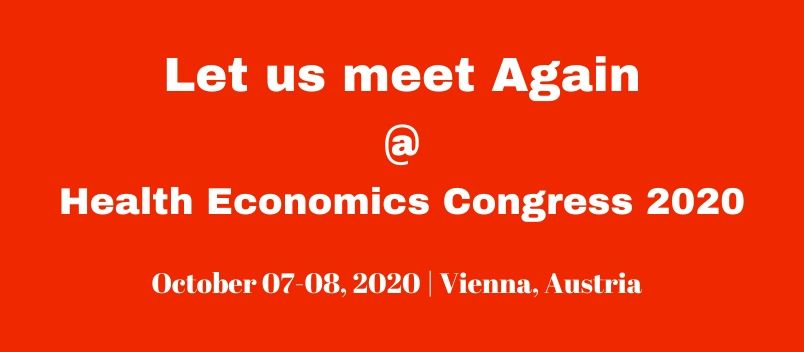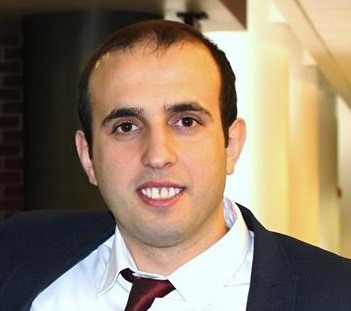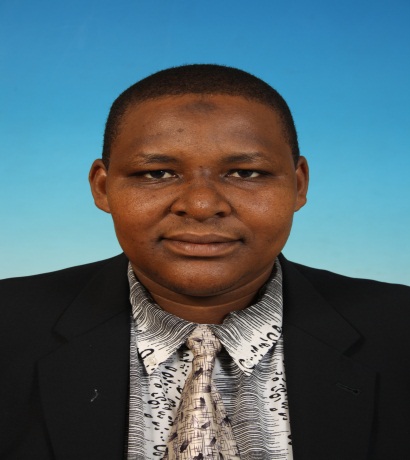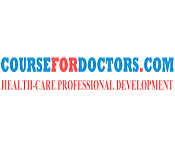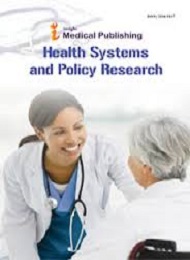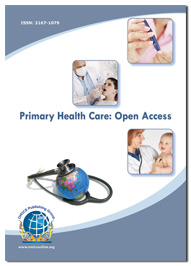Theme:
Health Economics Congress 2019
Hear Explore and learn the latest research. Present before distinguished global audience. Collaborate, build partnerships and experience in Copenhagen. Join the global academic community.
It is our great pleasure and honour to extend to you a warm welcome to attend the “5th World Congress on Health Economics, Health Policy and Healthcare Management” which will be held during October 14-15, 2019 in Copenhagen, Denmark.
The theme of this year Health economics conferences “Equity in delivery and financing of health services & health care across life cycle” brings together renowned experts from the international scientific community to provide a premier inter-multi-trans-disciplinary to exchange their latest results related to Health financing, health care services, Pharmaceutical manufacturers, health insurance, health econometrics, Behavioural economics, health outcomes research, health care markets, international health economics, Public health, macro and micro economics.
Health economics conferences 2019 is anticipating participation from renowned speakers including researchers, Health Economists, Healthcare Industry leaders, Health Policy Makers, Health care administrators, health care professionals, Nursing Professionals, Pharmaceutical and health insurance companies and many from leading universities. The scientific program paves a way to gather visionaries through the plenary lectures, research talks, workshops, and symposia invited sessions and oral and poster sessions of unsolicited contributions.
We hope and expect Health Economics Congress 2019 theme to inspire a number of research avenues, and look forward to discussing findings, ideas and synergies in this Global Academic Forum.
Target audience
- Health policy-makers
- Health care administrators
- Health care professionals
- Ministry of Health staff at the policy, operational decision-making levels in central and decentralized units
- Ministry of Planning staff working in the health sector
- Health economists
- Clinicians
- Researchers who have the on-the-ground skills of health care delivery and want to understand the logic of health care as an industry
- Graduates from health sciences and social sciences
- IT professionals who are interested in structuring practical research that measures the impact of proposed programs and health policy changes
- Students participating in the Master Health Sciences
- Medical health officers - They will be able to provide better services to the consumer
- Paramedical students – They manage various medical situations and economies of it and can be able to better advise the customers
- Individual hospital facility is benefited as this facilitates them of the hospital and perceives what services are needed by the customers of the hospital and the way will they be funded.
- Pharmaceutical and health insurance corporations will be benefited as this may facilitate in understanding the demand and provide varied health and insurance products and evaluate the economic viability of the same for the company.
Health Economics Associations and Societies
- American Society of Health Economists
- The International Society for Economics and Social Sciences of Animal Health
- Canadian centre for Health Economics
- Canadian association for health services and policy research
- Australian Health Economics Society
- LSE Health Society
- International Health Economics Association
- African Health Economics and Policy Association
- Athens Institute for Education and Research
About Hosting Organization: Conference Series
Conference Series is the world’s leading specialist in organizing Scientific, Academic and Business conferences, meetings, symposiums and exhibitions in different verticals and horizontals like Pharma, Medical, Engineering, Business Science and Technology to promote scientific research. Every year we host more than 3000+ global events inclusive of 1000+ Conferences 1000+ Symposiums 1000+ Workshops in USA, Europe, Middle East and Asia with the generous support and cooperation from our 30000+ Editorial Board Members, 1000+ Scientific Societies. All the conference proceedings are published in the special issues of our 700+ Open Access International Journals with the DOI provided by CROSSREF.
For more information: visit health economics conferences
We hope to see you at Health Economics Congress 2019
Track 1: Health Financing
This track will deal with the question, how best to financially manage the health sector of the economy? This question will be answered by explaining exactly what is meant by financial management of the health and what's to be done and what's not be worn out order to best manage it. Throughout 2015-19, per capita financial gain is predicted to extend at a CAGR of 8.09 per cent Per capita expenditure on tending in India is USD sixty 8.6 billion. The way to mobilize resources and the way to cut back the wasteful expenditure done by the individuals within the name of health. This section also will contend with the necessity of health system in India and why exactly is the system needed and in-depth analysis.
Track 2: Pharmaceutical Economics
Economics and pharmaceuticals are begun to energize the development of medication producing the direction of medications differs by ward. Arranging Commission has alloted US$ eighty three billion beneath the 125 Year set up for social insurance spending; this is regularly concerning US$ sixty billion a considerable measure of contrasted with the eleventh set up. In a few nations they are directed at the national level by a solitary organization. In different wards they are directed at the state level or at both state and national levels by different bodies. Per capita human services consumption is evaluated at a CAGR of 5 for every penny amid 2008– 15 to USD 68.6 by 2015.The role of therapeutic goods regulation is designed mainly to protect the health and safety of the population regulation is geared toward making certain the protection, quality, and effectualness of the therapeutic product that area unit lined below the scope of the regulation. National expenditures on health care area unit numerable $586.5 billion in 2017
Track 3: Macroeconomics
This track will solely deal with the different concepts of macroeconomics as to the law of demand and law of offer, snap of demand and provide, monopoly, demand prediction, the strategies to be utilized in demand prediction and why is demand prediction really required. Tending revenue in India is about to achieve USD 280 billion by twenty; expenditure is probably going to expand at a CAGR of seventeen per cent over 2011– 20. This will also help in explaining the demand supply curve and assumptions taken whereas shaping the availability curve. Additionally the exceptions to be unbroken in mind whereas decisive the availability curve. The world mHealth market need to reach $46.2 billion by twenty twenty one from $13.2 billion in twenty sixteen at a compound annual rate (CAGR) of twenty eight.6%, from 2016 to 2021.
Track 4: Health Economics and Hospital services
The swift growth of Hospital management enlarge the application of hardware, software, network and Integrated hospital data system have entered the majority hospitals and are getting most vital that covers a lot of elements in daily hospital operations. throughout 2009–15, the market size of personal hospitals is calculable to possess a CAGR of 44.2 percent. Most of the functions in a Hospital Services provide for the users to be easier and quicker method in doing their medical tasks with graphic program. Investments by non-public sector players are probably to contribute considerably to the event of India's hospital trade and therefore the sector is poised to grow to USD100 billion by 2015 and additional to USD280 billion by 2020. But the management data system focuses on daily operations with within the hospital to enhance potency of labour by exploitation on-line process and clinical knowledge acquisition.
Track 5: Health economics and Managed care
Health political economy play a number one role in optimizing scarce resources to enhance health outcomes. Managed care services are expected to advance at a CAGR of twenty-two. eight seven per cent throughout 2015–20 to succeed in USD 280 billion by 2020. It provides a foundation for the understanding of health political economy as applied within the wider context of health services research. Public health department exposes the student to the wider related academic disciplines of importance in understanding the interaction of economics and global health, such as epidemiology, public health and policy analysis. Health care sector registered eighty eight funding deals amounting to USD397.41 million as of Sep 2016.
Track 6: Health Care Services
Social insurance uses were measurable to be $3.54 trillion of every 2017, and square measure anticipated to take off to $5.55 trillion out of 2025. The medicinal services advertise inside the U.S. all through 2017 encased the principal classes of hospitalization ($1,140.8 billion); dental, Dr. what's more, clinical administrations ($845.0 billion); pharmaceuticals ($360.1 billion), together with home and private human services ($269.4 billion). Health Economics and health care is the field identifying with authority, administration, and organization of general public health, health awareness systems, clinics, and doctor's facility systems. health care executives will facilitate improve life for lots of, even thousands of individuals a day. Healthcare executives have a way of social mission they deeply care concerning the people they work with and serve. Hospitals and healthcare organizations provide opportunities for those who want to “do well by doing well.”
Track 7: Health Insurance
This track will deal with the question, how and why the health insurance is important in anybody’s life and what are the basic elements of the health insurance. This also deals with the different kinds of insurance available to the general public and various benefits of different types of health insurance scheme available. Health insurance is gaining momentum; witnessing growth at a CAGR of 15.36 per cent, throughout FY08-16, gross care premium in 2016 stood at USD 2.8 billion. Telemedicine market in India was valued at USD 15 million, and is predicted to rise at a CAGR of twenty per cent throughout FY16-20, going to USD thirty two million by 2020. This helps within the selecting the simplest insurance theme by the trainees which will supply them with most profit attainable.
Track 8: Public Health Economics
Public health economics play a leading role in optimizing scarce resources to improve health outcomes. It provides a foundation for the understanding of health economics as applied in the wider context of health services research. Public health economics exposes the student to the wider related academic disciplines of importance in understanding the interaction of economics and global health, such as epidemiology, public health and policy analysis. health care computable in$3.09 trillion in 2014, and unit projected to soar to $3.57 trillion in 2017. The tending market inside the U.S. in 2014.in this involved the foremost groups of medical care ($959.9 billion), Dr. and clinical facilities ($618.5 billion), dental services ($122.4 billion) and prescription medicines ($290.7 billion), in conjunction with nursing home and residential health care ($248.5 billion).
Track 9: Health Care Markets
The global marketplace for health care analytics reached $6.2 billion in twenty sixteen. This market need to reach nearly $7.2 billion during a try twenty seventeen and $14.9 billion by 2022, at a compound annual rate (CAGR) of 15.8%. Aid has become one in every of India's largest sectors each in terms of revenue and employment. Health Care Markets cluster may be a aid consultative and investment banking firm that has 3 operative units: A healthcare advisory unit, which provides strategic guidance and customized research; a specialized healthcare investment banking unit, which develops and implements plans to enhance client value; and a finance unit, that raises debt/equity funding for tending connected comes. The trade is growing at an amazing pace attributable to its strengthening coverage, services and increasing expenditure by public furthermore personal players throughout 2008-20, the market is predicted to record a CAGR of 16.5 per cent. The total trade size is predicted to the touch USD160 billion by 2017 and USD280 billion by 2020
Track 16: Economic Epidemiology and Infectious Diseases
Infectious Disease Epidemiology helps us to understand the correlations of contaminating agents, their hosts, vectors and environment. With reference to vas diseases, chronic metabolic disorders, cancers, polygenic disorder and mental state, the political economy simulations counsel a accumulative output loss of US$ forty seven trillion over future 20 years. This loss represents 75th of worldwide GDP in 2010 (US$ 63 trillion). It conjointly represents enough cash to eradicate 2 dollar-a-day financial condition among the 2.5 billion folks therein state for quite 0.5 a century. This information helps in understanding of how disease patterns vary among populations and how that impacts development of advanced therapies and treatment interventions.
Track 14: Health Economics Modelling
Health Economics Modelling is an essential part of the toolkit of any Health Economist who is involved with Economic Evaluation, either as Associate in Nursing analyst or a receiver or user of economic analysis. Investments by non-public sector players area unit doubtless to contribute considerably to the event of India's hospital trade and also the sector is poised to grow to USD100 billion by 2015 and additional to USD280 billion by 2020. This module goes on the far side the introductory sessions within the Introduction to Health economic science module and covers the total vary of model sorts that area unit applicable to be used in Health Economic analysis. As of 2016, medical business market is calculable to be around USD3.9 billion and is predicted to achieve USD 8 billion by 2020. Throughout 2013-16, the country’s medical business market witnessed growth at a CAGR of twenty seven per cent
Track 13: Health Economics and International Economics
International Health Economics deals with the world wide health including the areas of research & policies improving the health of the people achieving health equity for all people worldwide and protection against the global threats in regard of public health. Medical care market in India was valued at about USD 2.7 billion in 2014, and this is expected to rise at a CAGR of 20 per cent over 2011–15. It determines the health issues that transcend national boundaries and governments and call for actions on the global forces that determine the health of people. health care calculable in$3.09 trillion in 2014, and measure projected to soar to $3.57 trillion in 2017.
Track 14: Health Economics and Health Policy
The global marketplace for health and medical insurance suppliers reached $1.1 trillion in 2016. This market is countable to realize $1.6 trillion in 2020 from $1.2 trillion during a combine of017 at a compound annual rate of growth (CAGR) of eight. 6% for 2016-2020. It provides specialisation in the related fields of health economics, health policy and health care management with a particular focus on international health systems. It develops the capacity to design health reform programs, analyse policy effectiveness, perform economic evaluations of healthcare interventions, and determine challenges for policy implementation and governance problems by combining management skills with sound information of political economy and public health policies. the worldwide marketplace for cloud technologies in health care was $16.1 billion in 2016. The market need to reach $20.2 billion in two017 and $35.0 billion by 2022, growing at a compound annual rate of growth (CAGR) of 11.6% throughout 2017-2022.
Track 15: Health Econometrics
The key objective is to build capacity in health technology particularly in the application of econometrics ways and outcomes of health care interventions and health care exercise. As per NASSCOM, the Indian tending market is valued at USD one billion in 2016, and is anticipated to extend by1.5 times by 2020. Medicare, the U.S. federal government's health care program for Americans sixty five years or older, provided coverage to associate calculable 58.6 million seniors throughout 2017. It’s to assess the balance of trade between imports from econometrics literature into health social science, and export from health social science to a wider audience. National expenditures on health take care of business 2017 were projected to be $718.7 billion, beside premiums paid by beneficiaries and health care costs coated by health care.
Track 16: Healthy Aging
According to the report, the worldwide anti-aging market was valued at USD 100 forty.3 billion in 2015, is foreseen to reach USD 216.52 billion in 2021 and is anticipated to grow at a CAGR of seven.5% between 2016 and 2021. Aging thinks about with physical, mental, and social aspects and implications of aging. The field of aging and gerontology is actually quite broad, containing many professionals who focus on various aspects of aging and development. As indicated by the report, the overall enemy of maturing market was esteemed at USD 140. 3 billion of every 2015, is foreseen to achieve USD 216.52 billion out of 2021 and is foreseen to develop at a CAGR of seven.5% somewhere in the range of 2016 and 2021. While it might be considered one monster field, it genuinely comprises of the numerous littler fields all working related to an assembled center on middle-aged and older adults.
Track 17: Health Statistics
Health statistics are numbers about some aspect of health. Health statistics and data are important because they measure a wide range of health indicators for a community. Over 2012-22, diagnostic market is expected to grow at a CAGR of 20.4 per cent to USD32 billion from USD5 billion in 2012. The most common statistics reported are vital (birth, death, marriage, divorce rates), morbidity and mortality. The global marketplace for cloud technologies in health care was $16.1 billion in 2016. The market ought to reach $20.2 billion in 017 and $35.0 billion by 2022, growing at a compound annual rate of growth (CAGR) of 11.6% throughout 2017-2022.
IMPORTANCE AND SCOPE :
Health financial aspects is characterized as the financial aspects connected on the savvy examination of medicinal services. It is the least complex courses that amid which this will be earned as by coordinating the medicinal services administrations and the repayment technique consistently. The treatments, be it antiquated or imaginative ones, should be skilfully focused to improve the clinical results also as enhance the tending costs. The primary focus of medicinal services frameworks over the globe is on diminishing the value of wellbeing administrations per individual. Advances in therapeutic innovation and better reliance on medicinal gadgets has made it basic for those inside the restorative gadgets has made it basic for those in the medicinal gadgets industry to bring wellbeing financial aspects into genuine thought.
OVERVIEW:
Health Economics Congress 2019 means to unite experts from each corner who share a pledge to diminish the worldwide weight with the subject "Value in conveyance and financing of health administrations and human services crosswise over life cycle" expecting in excess of 350 social insurance experts, working in and past Health Economics to share encounters and best practices through welcomed keynote, entire addresses, symposium, workshops, welcomed sessions and notices covering a scope of points and critical issues which influence all of us from the exploration to the useful executions. We trust and expect Health Economics 2019 subject to rouse various research roads, and anticipate talking about thoughts, discoveries and cooperative energies, in this International Academic Forum.
HEALTH ECONOMICS OUTCOMES RESEARCH:
- Demonstrate information of the jobs and restrictions of business sectors and impetuses in wellbeing frame works.
- Distinguish between the different styles of monetary investigation and demonstrate a comprehension of advantages and disadvantages of the different methodologies.
- Critically audit distributed financial assessments of wellbeing advancements; Demonstrate a comprehension of the strategies used to familiarize the two expenses and advantages in the investigation of human services.
- Fiscal worries for Medicare began in the in the year 1957
- Federal medical coverage was accommodating the senior, incapacitated and end organizes renal sickness for Hospitalization, Ambulatory consideration, Prescription medications.
- Medicare insights for 2016:
- Federal protection was given to 57 million beneficiaries to $540 billion. This was 15 percent of the government spending plan and 3.0 percent of GDP.
STUDY GOALS AND OBJECTIVES:
- Exchanging thoughts and system with driving Health Economists, Public Health Economists, Doctors, Nurses, doctors, Health strategy producers, Health experts and Economic Evaluators from in excess of 40 nations
- Discuss quality activities that might be connected inside the training
- Discuss manners by which to work together in golf shot quality activities in situ put all through the Health Economics examination
- Participants will increase guide access to a centre group of onlookers of experts and chiefs and might build perceivability through marking and systems administration at the meeting
- Learn and talk about key news and difficulties with senior level speakers.
- With introductions, board talks, gathering discourses, and workshops, we cover each subject start to finish, from worldwide large scale issues to methodologies to strategic issues.
HEALTH ECONOMICS TARGET AUDIENCE:
- Health approach producers
- Health care managers
- Health care experts
- Ministry of Health staff at the arrangement, operational basic leadership levels in focal and decentralized unit
- Ministry of Planning staff working in the wellbeing segment
- Health financial experts
- Clinicians
- Researchers who have the on-the-ground abilities of human services conveyance and need to comprehend the rationale of medicinal services as an industry
- Graduates from wellbeing sciences and sociologies
- IT experts who are keen on organizing down to earth investigate that estimates the effect of proposed projects and wellbeing strategy changes
- Students taking an interest in the Master Health Sciences
- Medical wellbeing officers - They will have the capacity to give better administrations to the purchaser
- Paramedical understudies – They oversee different restorative circumstances and economies of it and can have the capacity to more readily prompt the clients
- Individual healing facility office is profited as this encourages them of the clinic and see what administrations are required by the clients of the doctor's facility and the way will they be subsidized.
- Pharmaceutical and medical coverage organizations will be profited as this may encourage in understanding the interest and give differed wellbeing and protection items and assess the financial feasibility of the equivalent for the organization.
WHY COPENHAGEN, DENMARK?
Copenhagen is the sprawling capital of Denmark sits on the coastal islands of Zealand and Amager. It’s one of the greenest cities in the world, with plans to be carbon neutral by 2025. Over the past decade, Copenhagen has cut its emissions by nearly a third through the use of wind and solar power, as well as heating systems that recycle waste material. An offshore wind farm, visible to most visitors who fly into Copenhagen, currently supplies the city with 4 percent of its energy. The water around Copenhagen Harbor is so clean, you can actually swim in it. Fifteen years ago officials decided to clean up its waterways, and now there are several swimming holes right in the center of town. Try doing that in New York City. Most of Copenhagen research and development centres are concentrated in Denmark. Denmark is no. 2 in the EU and no. 8 in the world as IMD World Competitiveness Center announced its 2015 competitiveness ranking of 61 economies.
The economy of Denmark is a modern market economy with comfortable living standards, a high level of government servicesand transfers, and a high dependence on foreign trade. The economy is dominated by the service sector with 80% of all jobs, whereas about 11% of all employees work in manufacturing and 2% in agriculture. Nominal gross national income per capita was the tenth-highest in the world at $55,220 in 2017. Correcting for purchasing power, per capita income was Int$52,390 or 16th-highest globally. Income distribution is relatively equal, but inequality has increased somewhat during the last decades, however, due to both a larger spread in gross incomes and various economic policy measures. In 2017 Denmark had the seventh-lowest Gini coefficient (a measure of economic inequality) of the 28 European Union countries. With 5,789,957 inhabitants (1 July 2018), Denmark has the 39th largest national economy in the world measured by nominal gross domestic product (GDP) and 60th largest in the world measured by purchasing power parity (PPP).
GROWTH OF HEALTH ECONOMICS:
Healthcare costs will continue to grow, in some cases much faster than the growth in healthcare expenditure. As a result, simply by increasing the funding, but without the much-needed reforms, no improvements will be ensured, including improved accessibility and higher quality of services. The operating costs of healthcare providers include, without limitation (based on sample entities from various segments): personnel costs (~52% of costs), costs of outsourced services, including patient meals (~24% of costs), costs of materials (~18% of costs), costs of infrastructure depreciation (~4% of costs), overhead and administrative costs (~2% of costs) and other costs, not quantified at present, e.g. costs of debt servicing. Virtually all these costs seem to be on the increase, based on an in-depth analysis. Personnel costs especially, which is reasonable as salaries in Polish healthcare are definitely lower than in other countries. On the other hand, this document indicates a number of structural changes aimed at improving the use of funds from the National Health Fund, infrastructure, and human resources, including specialists so that they perform tasks to which they are designated and fully use their competence. The need for changes is not only about the desire to cut costs, but, most of all, to make better use of resources, which are starting to be in short supply in Denmark (this goes mostly for doctors of certain specialties as well as nurses. The growing role of data processing is an area of healthcare that the world is headed towards, and Denmark will not escape it either. The purpose is to implement mechanisms to enable the most detailed planning possible at the entity level, measuring performance (both clinical and economic) and rewarding the best entities, for example with additional funding. Another significant need is to develop effective mechanisms to incite badly performing entities to take corrective measures. This means implementing pro-efficiency mechanisms in the healthcare system, similar to those in place in commercial companies, but following clear principles and under the supervision of competent authorities. Denmark is not a homogeneous country in terms of salary level or the costs of outsourced services, so there’s a need to develop standard indicators and relevant adjustment mechanisms (e.g. labour costs for nurses vary across the various regions of the country). Such indicators could involve the following groups: the state of the current infrastructure and future needs (quality, surface area, standard, available and missing equipment) patient satisfaction with the facility (according to differing criteria), therapeutic effectiveness or clinical indicators, and many more. As a result, a methodology would be developed that rewards good practices, by way of the so called Overall Efficiency Indicator (OEC).
The higher the indicator, the more funding entities would receive, while a lower indicator would mean less funding. Separate restructuring programmes and funds could be initiated to support weaker entities in achieving at least mid-market results.
Universities associated with Health Economics:
Warsaw University of Techno
Jagiellonian University
Poznań University of Techno
Adam Mickiewicz University
Wrocław University of Science
Warsaw School of Economics
Warsaw University of Life Sci...
Cardinal Stefan Wyszyńsk...
Medical University of Warsaw
Health Economics aims to produce students with the new ideas and quantitative skills necessary to face the twenty first Century challenges in the health sector like ever increasing health care costs, population aging and fast advances in medical technology.
SOCITIES ASSOCIATED WITH HEALTH ECONOMICS:
Society for European Business History
• Society for the Study of Emerging Markets - SSEM
• Society for the Study of Social Policy - SSSP
• Society for Women in International Political Economy - SWIPE
• Society of Business Economists - SBE
• Society of Economic Geologists - SEG
• Society of Economics of the Household - SEHO
• Society of Government Economists - SGE
• Society of Heterodox Economists - SHE
• Society of Labour Economists - SOLE
• Society of Quantitative Gastronomy
Disclaimer
The information developed in this report is intended only for the purpose of understanding the scope of hosting related international meetings at the respective locations. This information does not constitute managerial, legal or accounting advice, nor should it be considered as a corporate policy guide, laboratory manual or an endorsement of any product, as much of the information is speculative in nature. Conference Organizers take no responsibility for any loss or damage that might result from reliance on the reported information or from its use.
Conference Highlights
- Health Care Services
- Health Insurance
- Public Health Economics
- Health Care Markets
- Economic Epidemiology and Infectious Diseases
- Mental health
- Health Economics Modelling
- Health Economics and International Economics
- Health Economics and Health Policy
- Health Econometrics
- Healthy Aging
- Health Statistics
- Health Financing
- Pharmaceutical Economics
- Macroeconomics
- Health Economics and Hospital Services
- Health Economics and Managed Care
- Health Economics and Health Informatics
To share your views and research, please click here to register for the Conference.
To Collaborate Scientific Professionals around the World
| Conference Date | October 14-15, 2019 | ||
| Sponsors & Exhibitors |
|
||
| Speaker Opportunity Closed | Day 1 | ||
| Poster Opportunity Closed | Click Here to View | ||
Useful Links
Special Issues
All accepted abstracts will be published in respective Our International Journals.
Abstracts will be provided with Digital Object Identifier by

